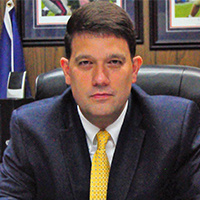Charleston Estate Lawyer, Mississippi
John C. Cox
✓ VERIFIEDAccident & Injury, Divorce & Family Law, Estate, Criminal, Real Estate
The Oldest Law Firm in Cleveland, Mississippi
A native of Cleveland , John C. Cox has been practicing law in his hometown since 1999. John began work as an associate for his late father and cous... (more)
Tommy W. Defer
✓ VERIFIEDAccident & Injury, Divorce & Family Law, Criminal, Estate, DUI-DWI
The Law Office of Tommy W. Defer was established in December 2003, and is located in the City of Water Valley, Mississippi (just 20 miles South of Oxf... (more)
Walter Alan Davis
✓ VERIFIEDDivorce & Family Law, Child Custody, Divorce, Accident & Injury, Wills & Probate
The law office of Dunbar Davis provides professional, competent and honest representation for their clients. John Dunbar and Walt Davis consistently s... (more)
Andrew M Westerfield
Education, Traffic, Estate, Wrongful Termination
Status: In Good Standing Licensed: 51 Years
Brandon Collins Dixon
Tax, Litigation, Estate Planning, Business
Status: In Good Standing Licensed: 15 Years
Carlos Eugene Moore
Real Estate, Mass Torts, Estate, Environmental Law, Accident & Injury
Status: In Good Standing




